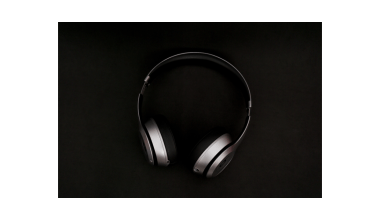Have you ever wondered how singers and musicians make money when their songs are played on the radio, in a mall, or on streaming platforms? That’s where neighbouring rights come in. These rights ensure that performers, like singers and musicians, and producers of music recordings get paid when their work is used publicly.
Neighbouring rights are different from copyright, which usually benefits songwriters and composers. These rights are all about the people who perform or record the music. Let’s break it down and see why this matters so much for artists and producers.
Why Neighbouring Rights Matter for Artists
If you’re an artist, you know how much effort goes into recording a song. Even if you didn’t write the song, your performance makes it special. Neighbouring rights make sure you get paid for that hard work. Here’s why they’re so important:
- Fair Earnings: Without these rights, artists and producers might not earn anything when their music is played publicly.
- Extra Income: For many musicians, neighbouring rights are a major source of income, especially if their music is played worldwide.
- Recognition for Your Work: These rights highlight the value of performers and producers, not just the songwriters.
How Neighbouring Rights Work in Simple Terms
Neighbouring rights are payments made to performers (like singers and musicians) and producers of music recordings. Here’s how they work:
- When They Apply: These rights kick in when your music is played on:
- Radio stations
- TV channels
- Streaming platforms (like Spotify or Pandora)
- Public places (like cafes, gyms, and malls)
- Who Pays: The people or businesses that use your music, such as radio stations or streaming services, pay fees to collecting societies. These societies then distribute the money to artists and producers.
- Who Gets Paid:
- Performers (e.g., singers, drummers, guitarists)
- Producers who make the recordings
What’s the Difference Between Neighbouring Rights and Copyright?
Neighbouring rights and copyright are like siblings – they’re related but not the same. Let’s see how they’re different:
| Copyright | Neighbouring Rights |
|---|---|
| Protects songwriters and composers | Protects performers and producers |
| Covers the lyrics and melody of a song | Covers the performance or recording |
| Pays royalties for writing the song | Pays royalties for playing the song |
For example, if a songwriter writes a hit song, they earn money from copyright. But if you’re the singer or the producer of the recording, you earn money from neighbouring rights when the song is played.
Where Did Neighbouring Rights Come From?
These rights didn’t always exist. In fact, there was a time when only songwriters got paid. But that changed with the Rome Convention of 1961, an international agreement that recognized the need to protect performers and producers.
Countries started creating laws to ensure fair payments. Today, most countries have systems in place to pay neighbouring rights, but the rules vary depending on where you are. For example:
- In Europe, neighbouring rights are strong and cover many situations.
- In the United States, these rights only apply to digital broadcasts like online radio (not AM/FM radio).
How to Claim Neighbouring Rights
If you’re an artist or producer, you might be wondering how to start earning neighbouring rights. The process is simpler than you think. Here’s a step-by-step guide:
- Join a Collecting Society:
- These organizations collect royalties on behalf of artists and producers. Some well-known ones are:
- PPL (UK)
- SoundExchange (US)
- GVL (Germany)
- These organizations collect royalties on behalf of artists and producers. Some well-known ones are:
- Register Your Recordings:
- Make sure your recordings are registered with the collecting society. Include details like song title, release date, and your role (e.g., vocalist, producer).
- Monitor Payments:
- Once your music starts earning royalties, check your account regularly to ensure you’re getting paid correctly.
How Are Neighbouring Rights Royalties Split?
The money collected for neighbouring rights is usually divided between performers and producers. The split is often 50/50, but this can vary depending on the agreement.
Example:
- A song earns $100 in neighbouring rights royalties.
- $50 goes to the performers (e.g., singer, guitarist, drummer).
- $50 goes to the producer of the recording.
Challenges with Neighbouring Rights
While neighbouring rights are great, they’re not without challenges. Here are some common issues:
- Not Every Country Pays:
- In some countries, like the US, neighbouring rights don’t apply to traditional radio broadcasts.
- Tracking Usage:
- It’s not always easy to track where and how your music is played, which can lead to missed payments.
- Lack of Awareness:
- Many artists don’t even know they’re eligible for these royalties!
Tips to Maximise Your Neighbouring Rights Royalties
If you want to earn more from neighbouring rights, here are some tips:
- Record as Much as Possible:
- The more recordings you have, the more chances you have to earn royalties.
- Collaborate:
- Working on other artists’ recordings can also earn you neighbouring rights royalties.
- Keep Your Metadata Clean:
- Ensure all your song information (like title, artist name, and producer) is correct and up-to-date.
Neighbouring Rights Around the World
Here’s a look at how neighbouring rights work in different parts of the world:
- Europe: Countries like France and Germany have strong systems in place to ensure performers and producers are paid.
- US: Only digital plays (e.g., Pandora, SiriusXM) are covered.
- Canada: Neighbouring rights apply to both traditional and digital broadcasts.
The Future of Neighbouring Rights
As streaming platforms like Spotify and Apple Music continue to grow, neighbouring rights are becoming more important than ever. Artists and producers are pushing for better laws, especially in countries with limited rights.
FAQs About Neighbouring Rights
Q: Do I need to write songs to earn neighbouring rights?
A: No, neighbouring rights are for performers and producers, not songwriters.
Q: Can I earn neighbouring rights for live performances?
A: Generally, no. These rights apply to recorded performances, not live ones.
Q: How much can I earn?
A: It depends on how often and where your music is played.
Conclusion: Why Neighbouring Rights Are a Must-Know for Artists
Neighbouring rights are a game-changer for artists and producers. They provide a steady income stream and ensure fair payment for the use of music. If you’re a performer or producer, take the time to understand these rights and start claiming what you’re owed. Your hard work deserves recognition, and neighbouring rights make sure you get it.
Related Articles:
For further reading, explore these related articles:
- How to Choose the Best Music for Your Event: A Simple Guide to Making Moments Memorable
- The Most Popular TikTok Songs That Everyone Loves
For additional resources on music marketing and distribution, visit Deliver My Tune.






